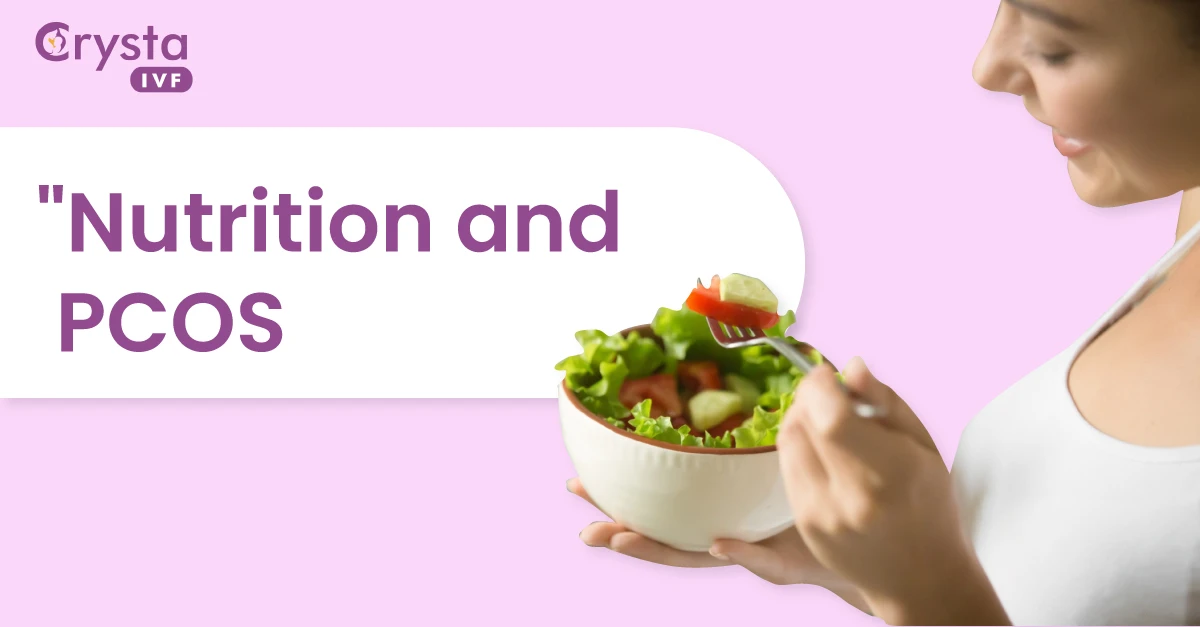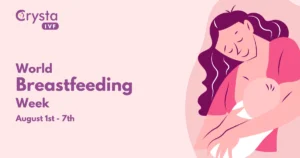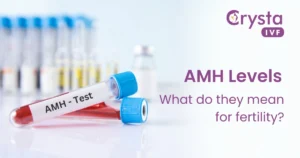PCOS, or polycystic ovary syndrome, is a female-related disorder in which the ovaries start producing male hormones called androgens. This hormone is usually found in small amounts in females, but in PCOS, an abnormally high level of androgens is found in the ovaries. And less amounts of female hormones prevent ovulation, so in this situation, many small cysts (fluid-filled) start forming inside the ovaries. In such a hormonal imbalance, ovulation does not take place and the menstrual cycle gets disturbed. Medication is often needed to treat PCOS and prevent further health issues.
You should consult best Gynecologists near you. With proper medical treatment, you can get rid of PCOS and enhance your healthy life.
Causes of PCOS
The causes of PCOS are unknown, but it is found that women with POS often have insulin resistance and it may cause hormonal imbalance. Obesity also contributes to PCOS and it may even worsen the symptoms linked to polycystic ovarian syndrome. sometimes PCOS is in genetics and it runs in families.
There are some main features that identify PCOS; these are:
In the ovaries, a number of follicles around the eggs, irregular ovulation, and a high level of androgen hormone in the body. These features are enough to detect PCOS.
Symptoms of PCOS
As it has already been said, PCOS is a mostly undetected syndrome because it doesn’t have easily recognizable symptoms. A woman can feel unrelated and random signs and symptoms that may affect their hormonal level dramatically.
- Hirsutism, or hair growth in unexpected areas of the body.
- Excessive acne, oily skin, and baldness (loss of hair from the scalp region).
- Miscarriages on a regular basis and an irregular menstrual cycle.
- Mood swings, weight gain, and infertility-like conditions.
Health risks linked with PCOS
Polycystic ovarian syndrome can create many long-term health risks. These are sub-fertility or infertility, diabetes, endometrial cancer, cardiovascular illnesses, and lipid abnormalities. Not all females develop these risks, but it is essential to monitor your health regularly if you have been diagnosed with PCOS lately.
Nutrition and PCOS
There is no cure available for PCOS, and it is a common disorder among women. However, lifestyle and dietary changes can help in the management of PCOS and potential complications occurring due to insulin resistance or hormonal imbalance. Therefore, here we are suggesting some dietary assistance for the people to help them out. The diet may include:
High fiber food
High-fiber foods offer many health benefits to those who are suffering from PCOS. It regulates the blood sugar level and, in this way, helps in lowering insulin insensitivity as well as weight loss. Some examples of high-fiber foods are berries, high-fiber vegetables, whole grains, and legumes.
Lean protein
Lean protein is another food group to choose. It keeps you fuller for a long time and helps with weight management too. Such foods include fish, skinless chicken, pulses, beans, peas, tofu, and many more.
Fruits, vegetables, and healthy fats
Apart from this, healthy fat-containing nuts, green leafy vegetables, and fruits are great sources of antioxidants that help with PCOS.
In some ways, nutrition may not be the complete solution for this disease, but in some ways it helps in the management of PCOS. Because a healthy diet prevents obesity, which is one of the leading causes of PCOS, So, to manage PCOS, it is vital to stick with a balanced diet and adding plenty of variety throughout the day would be an added advantage.
But besides healthy eating, it is equally important to restrict some unhealthy food items if someone has been going through PCOS. Such foods that are worth avoiding are:
Avoid processed food
Processed foods have a direct link with diabetes or insulin production since they tend to easily spike the insulin level or blood sugar level. Ready-to-eat meals, white bread, white rice, biscuits, cakes, etc. come in this category.
Restrict unhealthy fats
Consuming unhealthy fats may negatively affect women with PCOS. Because unhealthy fat-containing foods like red meat, cheese, or cream, fried or processed foods may lead to weight gain or obesity, Thus, it would be better to avoid such foods that can make PCOS worse. Limit your intake of full-fat dairy products too.
Avoid gluten free items
Avoid gluten-free foods since they are highly refined, so they might increase the risk of developing diabetes or insulin resistance. A high gluten diet may also increase the chance of androgen (male hormone) production in the body.
Consume alcohol in moderation
It is already known that excess consumption of alcohol is harmful to the body. It may spike blood glucose levels, which may worsen the insulin resistance in the body. It should be avoided completely or else its intake should be limited.
Prefer an active lifestyle over sedentary one
Increasing physical activity helps a lot, and it also improves insulin sensitivity. Hence, avoiding a sedentary lifestyle is another useful way to prevent polycystic ovarian syndrome.
Eat healthy Fats
Healthy fats in some foods, such as nuts, fish, olive oil, coconut oil, avocados, etc., help in many ways. They tend to keep us fuller for a long time and lower the glycemic load.
Limit sugar intake
Eating high-sugar foods like candy, sweets, cookies, cakes, carbonated beverages, and many others has a damaging effect on health because excess sugar is linked with diabetes and obesity. So controlling one’s sweet tooth is also essential if one has PCOS.
Have a balanced diet
A well-balanced meal is a way of managing PCOS. Eat everything in moderation and avoid unhealthy habits and foods. Add good carbs, lean protein, plenty of vegetables and fruits, along with good fats, to your day-to-day meals.
Prefer home-made
Eat home-cooked food since processed foods always contain loads of salt, sugar, fats, carbohydrates, and other unnecessary things. These things can only add weight to your body without providing any nutrition. Choose low sodium foods to prevent long-term health issues associated with PCOS.
Overview
Thus, eating a balanced diet and being active are very important to controlling polycystic ovarian syndrome. Both these things also help reduce the future risk of developing heart disease or diabetes. PCOS is a common problem and it affects most women. Healthy food and physical activity can improve the condition. So it can be managed well in this way.




